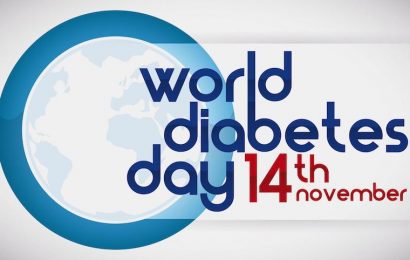Expanding screening for Type 2 diabetes and prediabetes sounds like it should be pretty uncontroversial — and, in fact, most diabetes-related organizations support stepping up screening efforts. Last year, a coalition of advocacy groups including the American Diabetes Association, the American Association of Diabetes Educators (AADE), and the American Association of Clinical Endocrinologists endorsed broadening the screening recommendations so that more people can receive treatment or “be referred to low-cost, community-based diabetes prevention programs.” As the Chief Advocacy Officer of the AADE said at the time, an estimated 79 million Americans have prediabetes, while another 7 million have undiagnosed diabetes, and identifying all of these people could go a long way toward reducing diabetic complications such as heart disease, stroke, kidney disease, and impaired vision.
But early detection of diabetes may not always have a dramatic effect on the rate of complications later on, as a recently released study hints. Published in the Annals of Family Medicine, the study looked at people ages 45–75 with recently diagnosed Type 2 diabetes: 206 who came in for diagnosis based on symptoms such as frequent urination, fatigue, infections, or blurred vision; and 359 who were diagnosed after a screening based on family history of diabetes and personal history of risk factors such as heart disease, obesity, hypertension, or gestational diabetes. The study sought to explore whether standard diabetes treatment — which both groups received — would lead to better or worse cardiovascular outcomes in either of the two groups. In theory, diabetes discovered through screening should be less “far along” in the course of the disease than diabetes discovered through symptoms, so researchers wanted to know whether catching diabetes earlier through screening could lead to better outcomes.
What they found, however, was more complicated. According to a MedPage Today article on the study, the two groups had different characteristics at the beginning of the study: the symptomatic group had higher fasting blood glucose and HbA1c levels, while the screening-detected group had experienced more cases of heart and kidney disease and had higher blood pressure. Participants were followed for an average of seven years. At the end of this period, the researchers found that despite better blood glucose control and a lower rate of using insulin in the screening-detected group, there was no significant difference between the two groups in the rate of heart attack, stroke, or death from cardiovascular disease. While the researchers interpreted these results as positive, since the screening-detected group had shown a greater history of cardiovascular problems at the beginning of the study, they admitted that the results might also be used to argue that screening leads to no better health outcomes in the end.
What do you think — should screening programs for diabetes be expanded? If so, who should pay for them? Should screening only be expanded if it can be shown to lead to better health outcomes? Was your diabetes discovered through routine screening, or did you have symptoms that led to your diagnosis? Did you participate in a screening program early enough to be diagnosed with prediabetes, and if so, do you think this helped delay the onset of diabetes? Leave a comment below!




